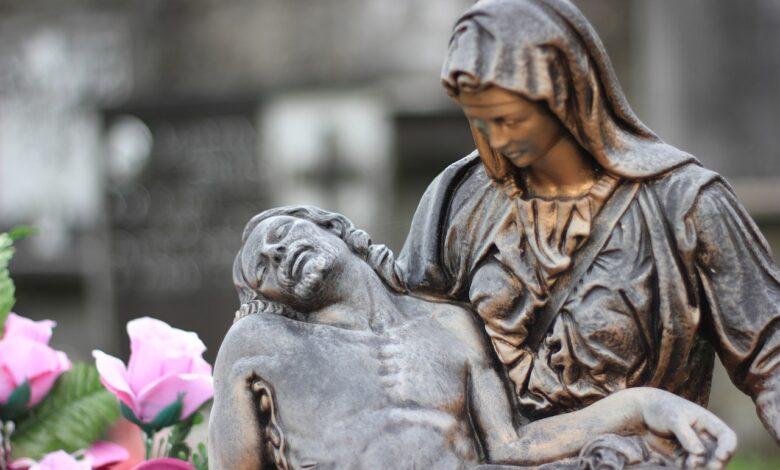Dying Dream Meaning & Biblical Interpretations

Dreams have always been a source of mystique and curiosity. Among them, the dying dream meaning holds a special place in the world of dream interpretation. What does it mean when we dream of death, be it ours or someone else’s? This concept not only delves into the psychological underpinnings of our deepest fears and desires but also touches upon the biblical meaning of dying in a dream. These dreams can be perplexing, stirring a mix of emotions and thoughts upon waking. This article aims to unravel the layers of dying dreams, offering insights into what they could signify in our waking lives, bridging the gap between ancient beliefs and modern interpretations.
Dying Dream Meaning and Interpretations
Interpreting visions of mortality in our nocturnal narratives can be as complex as the tapestry of human emotions. These slumber scenarios are not just about the end of life; they often symbolize deeper psychological aspects:
- Transformation and Transition:
- Personal Growth: A dream of passing away can signify an evolution in your personal or professional life, signaling readiness for new challenges or phases.
- Ending of an Era: Similarly, it can represent the conclusion of a significant chapter, paving the way for fresh beginnings.
- Fear and Anxiety:
- Manifestation of Fears: Sometimes, these dreams mirror our deepest anxieties, perhaps about health, loss, or the unknown.
- Stress Indicator: They might also surface during times of high stress, acting as a release valve for pent-up worries.
- Unresolved Issues:
- Symbolic Resolution: These visions might indicate unresolved conflicts or feelings, urging you to address them in your waking life.
- Emotional Release: They can serve as a subconscious attempt to process and let go of lingering thoughts or emotions.
- Reflection of Loss:
- Mourning Process: For those who have experienced the loss of a loved one, these dreams might be a part of the grieving process.
- Connection to the Departed: They can also signify a deep connection or an unresolved conversation with someone who has passed away.
- Metaphorical Interpretations:
- Symbol of Renewal: Often, these dreams are not about literal death but about shedding old habits, beliefs, or ways of life.
- Reflection of Sacrifice: They could symbolize a sacrifice you’ve made or a significant change in your life priorities.
Understanding these nocturnal visions requires delving beyond their surface, exploring personal context, and emotional resonance. Each dream is unique, just like the dreamer, and holds a mirror to the intricate workings of the subconscious mind.
What are Dying’s Common Dreams?
Dreams about demise are not just random; they often follow certain themes, each carrying its unique symbolism and interpretation. Here, we explore nine common types of these dreams and what they might signify:
- Falling into the Abyss: Often linked with a fear of failure or losing control, this dream can indicate feeling overwhelmed in your waking life. It may suggest a need to let go of certain aspects of your life or a fear of the unknown.
- Being Chased Leading to Demise: This scenario symbolizes avoidance. Are you running away from a problem or a difficult decision in your real life? It can also represent a confrontation with something you’re afraid to face.
- Perishing in an Accident: Dreams of accidental death often reflect anxiety about unforeseen changes or feelings of helplessness. It could be your subconscious expressing worry about losing control of a situation or relationship.
- Natural Disaster Causing Demise: Such dreams can symbolize overwhelming situations or emotions. They may represent feelings of being consumed by something much larger than yourself, possibly a life-changing event or powerful external forces.
- Dying in Battle or Conflict: This theme could represent a struggle you are experiencing in your life. It might indicate a fight for survival in some aspect of your reality, be it a job, relationship, or internal conflict.
- Terminal Illness Leading to Demise: Such dreams might reflect fears of vulnerability or a sense of impending doom. They could also be tied to deep-rooted anxieties about health and well-being, both mental and physical.
- Sacrificing Oneself: A dream where you perish for the sake of others can be a powerful symbol of selflessness or a reflection of a feeling of being overwhelmed by the needs and demands of others in your life.
- Drowning: This is often associated with being overwhelmed by emotions or situations. It could indicate feelings of being ‘in over your head’ in some area of your life, struggling to keep afloat amidst challenging circumstances.
- Old Age or Natural Causes: These dreams might reflect a fear of aging, losing vitality, or concerns about what the future holds. Alternatively, they can symbolize acceptance, a natural cycle of life, or a subconscious processing of life’s impermanence.
Understanding these dreams requires more than a surface-level interpretation. They are often multi-layered, reflecting various aspects of our lives, fears, desires, and even unacknowledged emotions. By reflecting on these dreams and exploring their meanings, we can gain insights into our inner world, addressing underlying issues and fears that may be affecting our waking life.
Exploring these common themes in dreams about demise is not just an exercise in curiosity; it’s a journey into our subconscious, uncovering hidden fears and unspoken desires. These nocturnal narratives are a reflection of our deepest selves, offering a unique perspective on our lives and challenges. They remind us of the complexity of the human psyche, the interplay of our fears and hopes, and the continuous journey of self-discovery and personal growth.
Biblical Meaning of Dying in Dreams
In the realm of dream interpretation, the biblical perspective offers a unique and profound understanding of dreams involving death. These dreams are often seen not just as mere night visions but as symbolic messages or divine guidance. Here, we delve into the biblical interpretations of such dreams:
- Transition and Transformation: In the Bible, death is frequently seen as a transition rather than an end. Dreams of dying, from this viewpoint, can signify a spiritual transformation or a call to embark on a new path in life.
- Warnings and Divine Messages: Biblical narratives are replete with instances where dreams, including those about death, serve as divine warnings or guidance. Such dreams could be interpreted as a call to introspection, urging a reassessment of one’s actions and choices.
- Spiritual Death and Rebirth: Often, these dreams symbolize a dying to the old self – a shedding of past habits, beliefs, or sins – and a rebirth into a new, spiritually enriched life. This aligns with the Christian concept of being ‘born again.’
- Prophecy and Foretelling: In some biblical contexts, dreams about dying have been seen as prophetic, indicating significant events or changes about to unfold in the dreamer’s life or community.
- Reflection of Inner Struggles: These dreams might also reflect inner spiritual struggles, battles between good and evil, or moral dilemmas. They could be a subconscious manifestation of a fight for spiritual survival or moral integrity.
- Comfort in Mourning: For those who have experienced loss, dreams of dying can offer comfort, reminding them of the biblical promises of eternal life and the hope of reunion in the afterlife.
- Test of Faith: Sometimes, such dreams could be a test of faith, challenging one to remain steadfast in their beliefs and trust in divine plans, regardless of life’s trials and tribulations.
- Expression of Deep Fears: Lastly, these dreams might also be an expression of deep-seated fears or anxieties, not necessarily about physical death but about spiritual failings or uncertainties.
In interpreting these dreams from a biblical perspective, it’s crucial to consider the context and personal beliefs of the dreamer. These dreams can be multifaceted, serving as mirrors to our spiritual health, indicators of divine messages, or reflections of our innermost fears and hopes. They invite us to look beyond the surface, urging us to seek deeper understanding and connection with our spiritual selves.
This biblical lens on dreams of dying opens a window into how ancient wisdom and modern psychology intersect, offering rich insights into the human psyche and its connection with the divine. Whether one views these dreams as divine messages, symbolic representations, or reflections of internal struggles, they hold profound meaning in the spiritual realm, offering guidance, warning, and often, a sense of hope and reassurance.
Conclusion
In conclusion, exploring the dying dream meaning is a journey through a complex landscape of emotions and symbolism. These dreams, often unsettling, are a reflection of our subconscious, echoing our innermost fears, transformations, and sometimes, a deeper connection to spiritual beliefs, as seen in the biblical meaning of dying in a dream. Understanding these dreams requires patience and introspection, allowing us to gain insights into our psyche and perhaps find comfort in the knowledge that death in dreams often symbolizes change, rather than an end.



